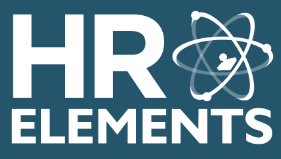Counseling and Corrective Action Plan
Corrective Counseling
Corrective counseling is a process used by managers or HR professionals to address and correct an employee’s behavior or performance issues. The goal is to help the employee understand the problem, discuss ways to improve, and outline the consequences if improvements aren’t made. Here’s how it typically works:
- Identifying the Issue: Clearly define the specific behavior or performance problem that needs correction.
- Documenting the Problem: Keep detailed records of the issue, including dates, times, and any previous attempts to address it.
- Private Discussion: Schedule a private meeting with the employee to discuss the issue in a constructive and non-confrontational manner.
- Providing Feedback: Explain the problem clearly and provide examples. Focus on the behavior or performance, not the person.
- Setting Expectations: Outline the expected changes in behavior or performance and set specific, measurable goals.
- Offering Support: Discuss any resources, training, or support the employee might need to improve.
- Explaining Consequences: Clearly communicate the potential consequences if the behavior or performance does not improve, which could range from further counseling to disciplinary actions.
- Follow-Up: Set a timeline for follow-up meetings to monitor progress and provide additional feedback.
Corrective counseling is not about punishment; it’s about guiding employees towards better performance and helping them succeed in their roles. When done effectively, it can lead to improved employee morale and productivity while reducing the need for more severe disciplinary actions.
Outsourcing corrective counseling can be beneficial for several reasons:
- Expertise: Professional HR firms have experienced specialists who are trained in handling sensitive issues like corrective counseling. They bring a level of expertise that ensures the process is conducted fairly, legally, and effectively.
- Objectivity: External HR professionals provide an unbiased perspective, which can be crucial in addressing issues without personal or internal biases influencing the process.
- Consistency: Outsourced HR services ensure that corrective counseling is handled consistently across the organization, adhering to best practices and company policies, which helps prevent inconsistencies that could lead to legal complications.
- Legal Compliance: External HR experts are up-to-date on the latest employment laws and regulations, reducing the risk of legal issues arising from improper handling of employee disciplinary matters.
- Time Efficiency: Outsourcing allows business owners and managers to focus on their core responsibilities, while the external HR team manages the counseling process efficiently.
- Risk Management: Outsourcing helps mitigate the risk of mishandling sensitive situations, which can lead to grievances, lawsuits, or damage to company morale and reputation.
- Confidentiality: External HR providers often have stronger protocols for maintaining confidentiality, ensuring that sensitive information is protected.
- Scalability: As the company grows, the complexity of employee relations increases. An outsourced HR firm can scale its services to meet the evolving needs of the business.
By outsourcing corrective counseling, small businesses can ensure that employee issues are addressed professionally and effectively, leading to better outcomes for both the employees and the company.







